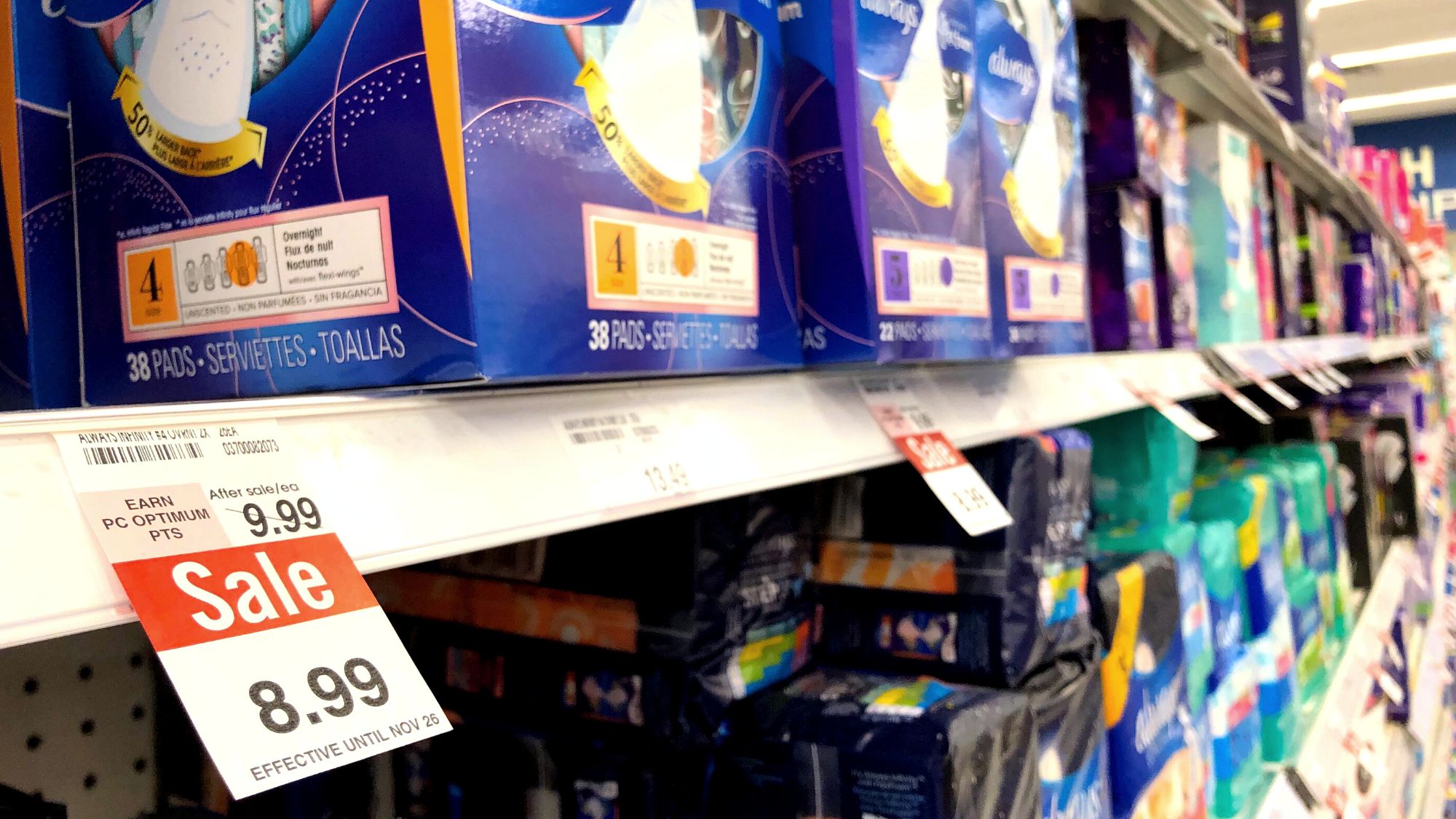Period poverty is getting worse in Nova Scotia, advocates say
Free tampons harder to get as new closures happen across the province

caption
Menstrual products available at Shoppers Drug Mart.As Nova Scotia enters its second wave of COVID-19, free menstrual products are getting harder to come by.
As more public places shut down again, period poverty worsens, said Linda Wilson, the executive director of Shelter Nova Scotia. Halifax Public Libraries offers free menstrual products in all their washrooms but almost all of them have closed due to the latest COVID-19 restrictions. Wilson said if other places like schools where menstrual products are available close, “it will be a crisis for sure.”
Period poverty is an issue affecting those who don’t have access to safe, hygienic menstrual products. Contributing to period poverty is the huge increase in homelessness since COVID-19 and a lack of affordable housing in the province, said Wilson. There are 490 people homeless in HRM as of Wednesday, according to the Affordable Housing Association of Nova Scotia.
Last year around the holidays, Wilson said, Shelter Nova Scotia was overwhelmed with menstrual product donations but this year, not so much. Related stories
“The need has not gone away just because people aren’t talking about it,” said Erin Casey, founder of the Dignity Period campaign and a period poverty activist.
Casey’s campaign to collect menstrual product donations and raise awareness for period poverty started just over two years ago. Since the pandemic, Casey said the movement has been on pause.
“Period poverty is poverty,” said Casey, and the pandemic only worsens poverty. As public places like libraries and community centres close there is less access to menstrual products. “Anything that exacerbates poverty is going to exacerbate period poverty.”
One-third of Canadian women under 25 struggle with period poverty, according to Plan International Canada. That’s about one million people, said Casey.
“They’ve always struggled and they’re struggling even more now,” she said.
As we look towards rebuilding an economy, period poverty is something that employers need to be thinking about, said Casey. Providing menstrual products in the workplace is the next step in activism, she added.
“It shouldn’t be any different than toilet paper or soap,” said Casey.
Sandra Mullen is the vice-president of the Nova Scotia Government and General Employees Union. She has worked with United Way and Casey to collect donations for period poverty.
“When you’ve got three girls in your home … as a single parent, those are products that you need to buy every month. You have no choice in those matters,” said Mullen.
Mullen said the conversation surrounding period poverty opened up two years ago: “The day we brought up period poverty in a boardroom of mixed gender, the eyes popped and the mouths dropped just as they might have 50 years ago.”
Mullen said she believes we need to start the conversation again.
Taqdir Bhandal, CEO of I’m With Periods, said prior to the pandemic there had been a big push to get period products free in public places, but now because of financial hardships, people aren’t able to donate as much.
Bhandal imagines there’s going to be a shift in access to menstrual products and we’ll see a shortage of supplies in Nova Scotia. She said the demand to have free menstrual products available in every public place is even greater now.
How can you help? Next time you drop supplies off at your local food bank, include a box of pads or tampons, said Bhandal.
About the author
Talia Meade
Student journalist from Ottawa. Interested in videography, creative nonfiction and politics.
